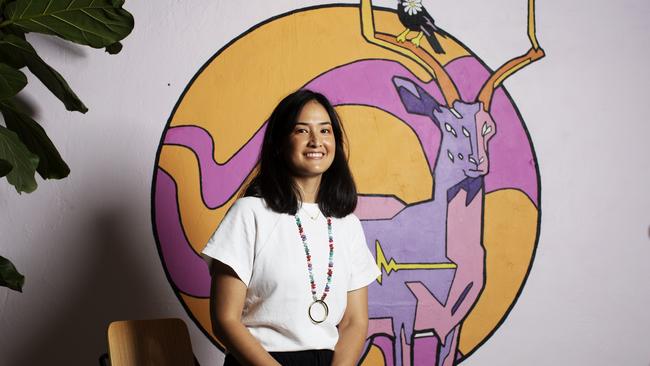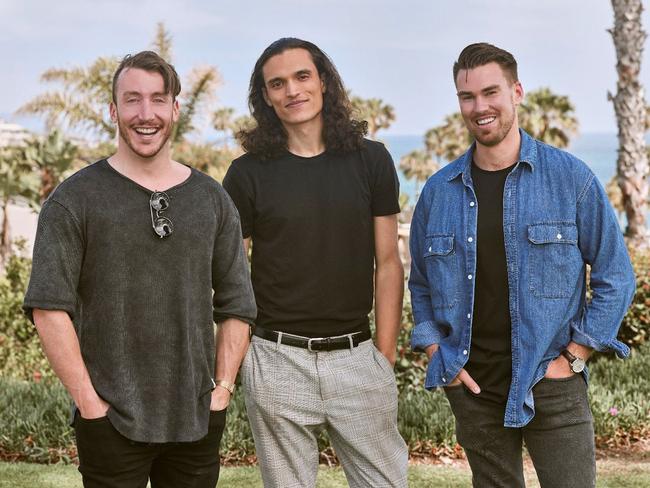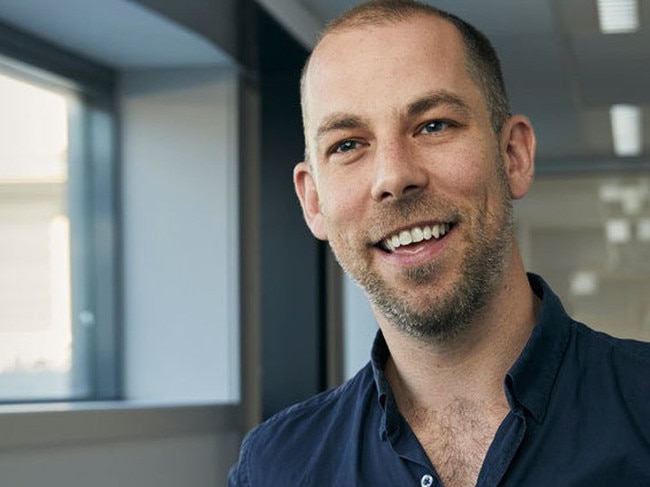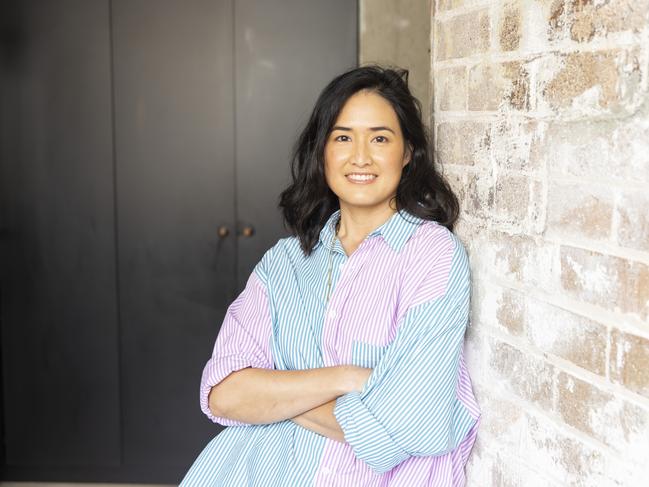‘We didn’t sleep’: How Australia’s VCs and start-ups weathered the SVB collapse
Australia’s leading investors and founders lift the lid on their week from hell that started when their phones started buzzing.

Blackbird Ventures partner Samantha Wong was huddled at a social event with a group of five-dozen fellow venture capital investors in London when their WhatsApp notifications started buzzing with messages warning of Silicon Valley Bank‘s impending collapse.
Wong, one of Australia’s leading start-up investors, said that within hours the messages became an avalanche as shares in SVB collapsed, and it quickly became clear to her and those around her that the situation would be perilous for start-ups who relied on the bank for funding.
Blackbird last year closed Australia’s largest ever venture capital fund, banking $1bn from large superannuation funds and high-net worth individuals. About a third of its portfolio companies, which include high-profile Australian start-ups like Canva and Culture Amp, had accounts with SVB, which went under last week in the second-largest bank failure in US history.
“It became clear pretty quickly that a bank run had started,” Wong tells The Weekend Australian in an interview.
“It’s amazing how many communications you can have in tandem. I started reaching out to my portfolio companies, at the same time as when the other Blackbird partners in Australia were coming online. We all gathered and essentially started divvying up the jobs of reaching out to our portfolio founders to let them know what’s going on, asking if they had accounts with SVB and helping them work through what’s next.”
Wong says that for most of those start-ups though the bank wasn’t critical to their operations, compared to in the US where SVB’s closure meant many start-up executives were left wondering if they’d be able to meet payroll obligations or pay rent.
SVB held deposits of $US290bn ($433bn) before it went under on Friday and US authorities are now probing the bank‘s collapse, which sent shockwaves through Australia’s VC and start-up industries, and financial markets globally. SVB suffered a bank run as rising interest rates drove down the value of assets, forcing it to sell bonds at a loss and spooking investors in the process.
“A lot of the start-ups in the US, all of their cash was with SVB,” Wong said. “And opening another bank account usually takes a week or so, I think a lot of the panic was driven by that kind of scenario, and thankfully that was really not the case with basically 100 per cent of our portfolio, who weren’t completely dependent on SVB for their banking services.
“SVB have been a partner to the whole Australia and New Zealand ecosystem for more than a decade so we reached out to try and get answers from them, and it became pretty clear that there wasn’t much more they could say.”
Founded in 1983 by former Bank of America managers to focus on the needs of start-ups, SVB offered mortgage lending, private stock-based lending and lines of credit to start-ups globally including in Australia.
For Checkmate co-founder Rory Garton-Smith, a former Apple engineer who is based in Los Angeles, the text messages started arriving at 10am on Thursday from some of the start-up‘s investors, including Blackbird, warning of a potential issue with SVB, and to stay tuned, given the company had money tied up in the bank.

“An hour after that the messaging changed,” Garton-Smith told The Weekend Australian. “It changed to, ‘they are a stable bank, but let’s pull our money out just in case. I’m sure nothing will happen but you never know’.
“Then an hour after that, the texts became, ‘Pull all your money out ASAP. Ring everyone you know, and make sure they withdraw it also’.
“By that point it was a full-on frenzy across all founder and VC group chats.”
Checkmate, a start-up Garton-Smith runs with his former school friends Elliot Rampono and Harry Dixon who met at the University of Western Australia, has built a browser extension that automatically finds and applies online coupon codes.
Garton-Smith tried to wire millions of dollars out on Thursday afternoon but the wire was frozen.
“Harry and I didn’t sleep that night,” Mr Garton-Smith said. “We were up at 6am checking if the wire had sent, but it was still sitting there in a ’pending’ state. By 9am on Friday the Feds had shut down the bank and you could no longer log in.
“We spent the weekend in a deeply concerned state watching the news closely … I barely slept all weekend.
“On Sunday night the feds announced they were making the deposits whole and the entire industry breathed a collective sigh of relief.”
James Cameron, partner at one of Australia’s other top venture capital firms AirTree Ventures, like Wong and Garton-Smith spent the weekend dealing with a flood of WhatsApp and Slack messages from start-up founders and his own colleagues.

He told the Fintech Australia podcast this week that start-up founders knew they were in a crisis outside of their own making.
“A lot of founders are very used to the feeling of cocking things up themselves, and making mistakes,” he said. “And I think this was certainly something that was well and truly outside of their dealings. So most of them went into the mode of just dealing with it … And I‘m incredibly impressed at the ability of the founders that we worked so closely with just to get on with things and go into ’fix it’ mode.
“They heard the news, they took it on the chin, and then they just went into a mode of shoring up cash, understanding their day-by-day cash flow needs and understanding options like bringing on emergency debt financing. All of this stuff happened very quickly; we had our lawyers were drafting up term sheets to do a capital injections first thing Monday morning for the companies that needed to make payroll.”
Cameron said AirTree’s start-up founders were “falling around themselves to help each other.”
“I think that was that one of the one of the greatest things about being in a small ecosystem like Australia, is that portfolio founders really want to help each other, they want to help each other pull through and are very happy to share what‘s going on in their own businesses, for the help of people who are more heavily affected.
“I was very impressed with the government and regulators as well. Not only did they swoop in quickly, manage the situation well and communicate actively, they then obviously provided a solution that was elegant and kind of worked for everybody. I think there’s a lot of government bashing out there and people love to bash regulators and talk about bureaucracy, but in a moment of crisis, I think they were extremely effective.”
US banking regulators stepped in this week after SVB’s failure and moved to stem the panic, devising a plan to backstop depositors and give them full access to their money. Start-up founders and their investors have been able to take a breath, at least for now.
According to Wong, Australian regulators can and should look at the example set by the Export Development Bank of Canada, which she said after SVB’s collapse looked to step in provide the same loans that SVB was providing.

That move granted Canada’s start-ups a level of business continuity and confidence that was highly valuable amid a week of panic and turmoil, Wong said, a move that Australia can look to for inspiration.
“I thought that was an awesome initiative because venture debt funds growth, so if you remove the venture debt then you depress growth,” she said.
“So how do you avoid those consequences for the ecosystem? It would be awesome to see the Australian government think about how they can play a similar role if a situation like this happens again in the future.”
Amid what he described as ultimately a traumatic situation for Australian start-up scene, Cameron said it demonstrated how calm our entrepreneurs are in a crisis.
“We put our trust and our capital with them. And they are very good to work with and sensible and smart, which has been a huge positive, I think.
“The smartest people in the country are leaving university and they want to go and work at Canva, not Goldman Sachs. Yes the last 18 months has been stressful, yes last weekend was incredibly stressful, but longer term I‘m still incredibly optimistic about tech in general, and I think it’s easy to get lost sometimes in these kinds of short term gyrations.
“We are lucky to be in a growing sector of the economy with lots of opportunity, including the opportunity I guess to bring Australia onto the world stage.”




To join the conversation, please log in. Don't have an account? Register
Join the conversation, you are commenting as Logout